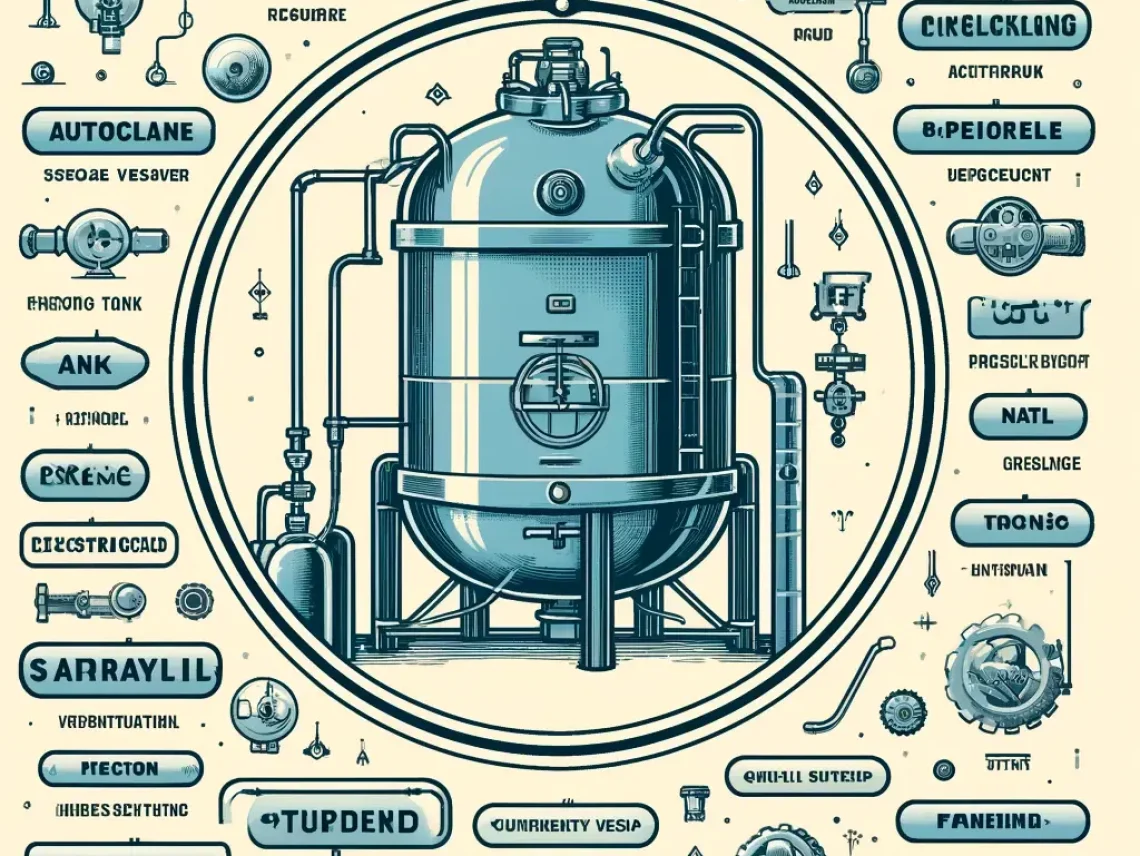Exploring Pressure Vessel Basics

Table of Contents
ToggleIntroduction to Pressure Vessels
A pressure vessel, at its core, is a box designed to hold gases or liquids at a pressure significantly higher or lower than the ambient pressure. These are not just industrial components; rather, they serve as the backbone of numerous sectors, driving progress and enhancing performance.
The Many Names of Pressure Vessels
Pressure Container: A Common Alternative
Often referred to as pressure packing containers, these vessels play a crucial role in ensuring both protection and performance across various industries. As a result, their reliability and durability are key factors in maintaining operational efficiency.
Exploring the Functionality of Pressure Vessels
How Pressure Vessels Work
Understanding the mechanics of pressure vessels is critical. Specifically, they are designed to withstand extreme pressures, ensuring safety and functionality even in the most demanding environments. Consequently, their structural integrity is vital for industries that rely on high-pressure applications.
Types of Pressure Vessels in Industry
Industrial Pressure Vessels and Their Uses
Industrial pressure vessels are utilized in numerous sectors, each designed to meet specific operational requirements and safety standards. Therefore, selecting the right type of vessel is essential for optimizing efficiency and maintaining compliance with industry regulations.
Design and Manufacturing of Pressure Vessels
Key Design Principles for Pressure Vessels
At Red River, we believe in the power of a firm handshake and a job well done. Consequently, this philosophy is deeply reflected in our design approach. By prioritizing reliability, efficiency, and protection, we ensure that every pressure vessel we manufacture meets the highest industry standards.
Pressure Vessels in Everyday Life
Common Household Pressure Vessels
Our expertise goes beyond business applications. We recognize the vital role pressure vessels play in daily life, ensuring safety and reliability for families and communities.
Regulations and Compliance for Pressure Vessels
International Safety Standards for Pressure Vessels
We uphold international safety standards with unwavering commitment. Rather than just complying, we set new benchmarks in safety and excellence through leadership and innovation.
Need a reliable partner?
FAQ: Understanding Pressure Vessels
What are the key elements to not forget while deciding on substances for pressure vessels?
Selecting the right materials for pressure vessels depends on several factors. The primary consideration is the vessel’s operating environment, including temperature and exposure to corrosive substances. Common materials include carbon steel for general applications, while chrome steel, Hastelloy, and Inconel are ideal for highly corrosive conditions. Pressure levels and the type of substance contained (gas or liquid) also influence material selection. Choosing the right material ensures stability, corrosion resistance, and cost-effectiveness.
How do pressure vessels handle intense temperatures and pressures?
Engineers design pressure vessels to withstand high temperatures and pressures using durable materials and safety features. Thick walls, liners, and cladding enhance protection, while pressure relief valves prevent over-pressurization. The design must account for thermal expansion and expected pressure loads. Advanced computational methods and rigorous testing ensure these vessels perform reliably under extreme conditions.
What are the differences between a pressure vessel and a boiler?
Both pressure vessels and boilers handle high-pressure fluids, but their functions differ. A pressure vessel primarily stores gases or liquids under high pressure, regardless of temperature. A boiler, however, is a specialized pressure vessel designed to generate steam by heating water. Boilers often include furnaces to burn fuel for heating, requiring stricter safety regulations due to the risks associated with steam technology.
Can pressure vessels be custom-designed for unique applications?
Absolutely. Custom-designed pressure vessels are common, specifically in industries with specific necessities. Factors like size, form, cloth, and internal additives may be tailored to unique wishes. For instance, a chemical processing plant would possibly want a vessel with a unique lining for corrosion resistance, even as a food processing plant may require a chrome steel vessel for hygiene functions. Customization guarantees that the vessel plays optimally in its supposed application while adhering to safety requirements.
What are the emerging trends in pressure vessel technology?
The area of pressure vessel technology is evolving swiftly with numerous key trends. One huge trend is the growing use of composite materials, which provide excessive power-to-weight ratios and notable corrosion resistance. Another trend is the mixing of smart sensors and IoT generation for real-time monitoring of pressure, temperature, and other important parameters. This advancement enhances protection and efficiency by enabling predictive upkeep and early detection of ability troubles. Additionally, there is a growing focus on sustainability, with efforts to lay out extra energy-efficient vessels and use green materials.
Table of Contents
ToggleRelated Blog Post
- What is a forged pressure vessel?
- How do you design a pressure vessel?
- What is the process of vessel fabrication?
- Which welding is used for pressure vessel?
- What is the most common design of pressure vessel?
- What is the difference between a boiler and a pressure vessel?
- What are different methods used for fabrication of vessel explain it?
Solutions
In the realm of industrial solutions, Red River emerges as a pioneer, offering a diverse range of custom-engineered products and facilities. Among our specialties is the design and production of Custom/OEM Pressure Vessels, meticulously crafted to meet individual client requirements, ensuring performance under various pressure conditions. Our expertise extends to the domain of prefabrication, where Red River leads with distinction.
The company excels in creating prefabricated facilities, modules, and packages, reinforcing its stance as a forerunner in innovation and quality. This proficiency is further mirrored in their Modular Skids offering, where they provide an array of Modular Fabricated Skid Packages and Packaged equipment. Each piece is tailored to client specifications, underlining their commitment to delivering precision and excellence in every project they undertake.
